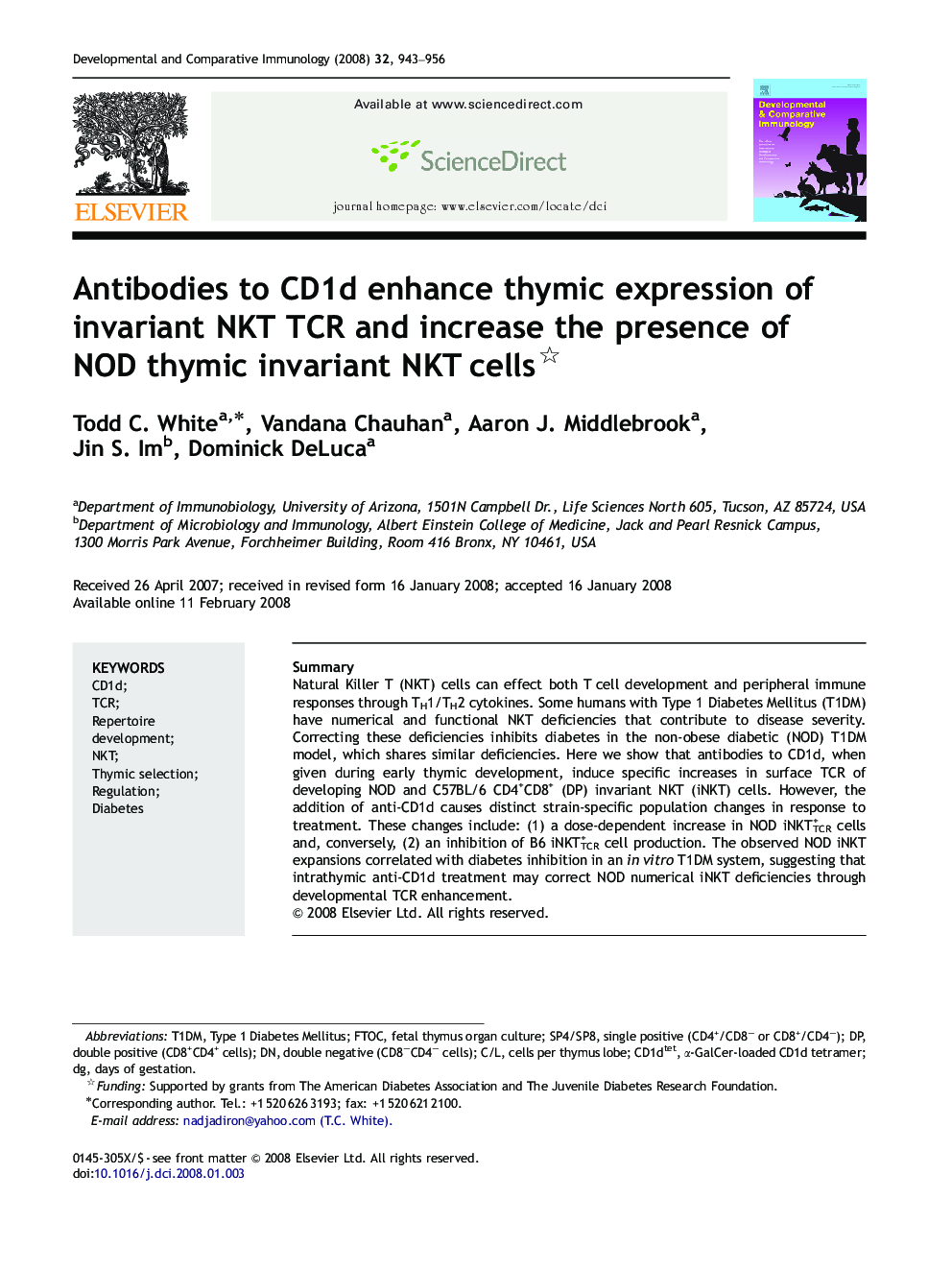| Article ID | Journal | Published Year | Pages | File Type |
|---|---|---|---|---|
| 2430038 | Developmental & Comparative Immunology | 2008 | 14 Pages |
SummaryNatural Killer T (NKT) cells can effect both T cell development and peripheral immune responses through TH1/TH2 cytokines. Some humans with Type 1 Diabetes Mellitus (T1DM) have numerical and functional NKT deficiencies that contribute to disease severity. Correcting these deficiencies inhibits diabetes in the non-obese diabetic (NOD) T1DM model, which shares similar deficiencies. Here we show that antibodies to CD1d, when given during early thymic development, induce specific increases in surface TCR of developing NOD and C57BL/6 CD4+CD8+ (DP) invariant NKT (iNKT) cells. However, the addition of anti-CD1d causes distinct strain-specific population changes in response to treatment. These changes include: (1) a dose-dependent increase in NOD iNKTTCR+ cells and, conversely, (2) an inhibition of B6 iNKTTCR+ cell production. The observed NOD iNKT expansions correlated with diabetes inhibition in an in vitro T1DM system, suggesting that intrathymic anti-CD1d treatment may correct NOD numerical iNKT deficiencies through developmental TCR enhancement.
